Blog
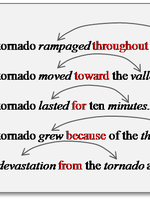
Adjective Prepositional Phrases
- 06.09.2018
- vlad.pruha.web
- 1
Definition: An adjective prepositional phrase describes a noun or pronoun. It answers the questions which one, what kind, how much, or how many.More
Adjective: The wind's sound made a whistling noise.
Prepositional Phrase: The sound \of the wind made a whistling noise.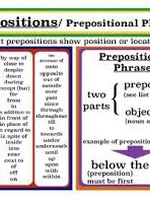
Prepositions and Prepositional Phrases
- 06.09.2018
- vlad.pruha.web
- 1
Definition: A preposition is a word that shows the relationship between a word in the sentence and the word that is the object of the prepositionMore
.
You have just finished the Modifiers Module. You learned that adjectives tell which one, what kind, how much, and how many about a noun or pronoun. You learned that adverbs tell where, when, how, and to what extent about verbs, adjectives, and adverbs.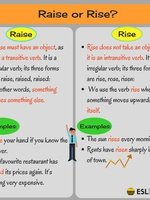
Challenging Verbs: Rise/Raise
- 06.09.2018
- vlad.pruha.web
- 1
Rise: to rise (yourself).More
I rise from my bed when I am no longer tired.
Raise: to raise something else.
I always raise my hand in class.
Present Present
Participle Past Past Participle
Rise (self) rise rising rose risen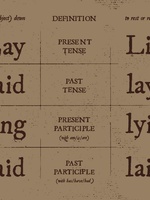
hallenging Verbs: Lie/Lay
- 06.09.2018
- vlad.pruha.web
- 1
Lie: to lie (yourself) down.More
I lie down on my bed when I am tired.
Lay: to lay something else down.
I lay down my backpack in the hallway when I get home.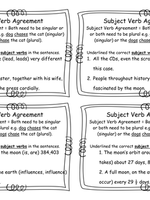
Challenges in Verb Agreement
- 06.09.2018
- vlad.pruha.web
- 1
Challenge 1: Compound SubjectsMore
If the subjects are joined by and, you always use a plural verb. (Hint: one and one are always two.)
Mystery and fantasy are my two favorite genres.
My mother and my father are both home from work.
The exception to this is when and joins two nouns, but they are considered a single object.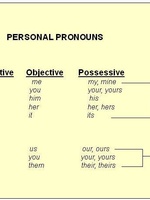
Challenging Uses of Cases
- 06.09.2018
- vlad.pruha.web
- 1
There are several types of sentences that cause confusion about whether to use a subject or object pronoun: sentences with a compound subject or object; sentences with a pronoun followed directly by a noun; and sentences that use pronouns after than or as. After this lesson, you'll be much more confident about which pronouns to use in these tricky situations.More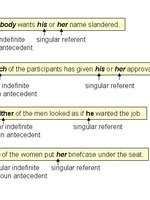
Pronoun Agreement
- 06.09.2018
- vlad.pruha.web
- 1
Definition: Ante (not anti) means before. The root cedere means to go. The antecedent goes before the pronoun. It is the noun that the pronoun replaces. A pronoun must match, or agree, with its antecedent in number, person, and gender.More
Hint:You can be sure a noun is the antecedent if you can use that noun in place of the pronoun.
My mother gave me her bracelet.
My mother gave me my mother's bracelet.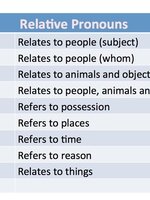
Relative Pronouns
- 06.09.2018
- vlad.pruha.web
- 2
Definition: A relative is someone who has a relationship with you. Relative pronouns show a relationship between a noun and a clause. The clause provides describing information about the noun. You can also use relative pronouns to combine two sentences into one.More
Relative Pronouns
That Which Who Whom Whose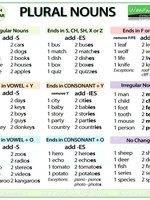
Irregular Plural Nouns
- 08.08.2018
- vlad.pruha.web
- 2
Irregular nouns form plurals in unusual ways. Dictionaries will give you the plural spelling if it is irregular.More
one child ⇒ two children
one foot ⇒ two feet
one tooth ⇒ two teeth
one man ⇒ two men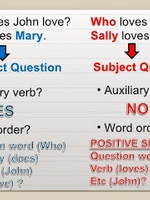
Question forms & subject/object questions
- 08.08.2018
- vlad.pruha.web
- 5
To form yes/no questions where there is an auxiliary verb or a modal verb, we invert the word order of a positive sentence.More
Question forms & subject/object questions
Review of question forms
Yes/No questions